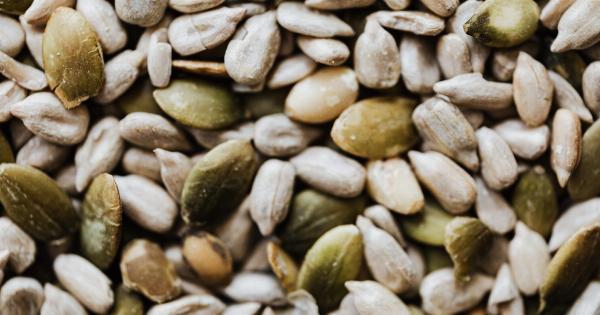When it comes to conception, there are a lot of factors that can come into play. Many people are unaware, however, that their diet can play a major role in their ability to conceive.
In this article, we’ll explore how various foods and nutrients can help or hinder conception, as well as other ways in which diet impacts fertility.
Hormonal Balance and Fertility
Hormones play a crucial role in the conception process. Women who have irregular menstrual cycles or who do not ovulate regularly may have trouble conceiving.
Hormones such as estrogen and progesterone, as well as luteinizing hormone (LH) and follicle-stimulating hormone (FSH), help regulate these processes.
Vitamins and Nutrients for Conception
Folate
Folate, or folic acid, is an essential B vitamin that helps prevent birth defects. It is also important for fertility, as it helps regulate ovulation. Studies have found that women who consume more folate have higher rates of conception.
Iron
Iron is important for both male and female fertility. In men, it helps improve sperm count and motility. In women, iron deficiency can greatly affect fertility by disrupting ovulation and the menstrual cycle.
Zinc
Zinc is important for both male and female fertility. In men, it helps improve sperm count and motility, while in women it helps regulate the menstrual cycle.
It is also important for the production of progesterone, which is essential for implantation and a healthy pregnancy.
Omega-3 Fatty Acids
Omega-3 fatty acids, found in fatty fish such as salmon, are important for both male and female fertility. Studies have found that women who consume more omega-3s have higher rates of conception.
Omega-3s help regulate hormones and improve blood flow to the reproductive organs.
Foods to Avoid for Conception
Soy
Soy contains phytoestrogens, which can disrupt hormonal balance and interfere with ovulation. It is best to limit soy consumption when trying to conceive.
Caffeine
Caffeine is a stimulant that can affect hormonal balance and disrupt ovulation. It is best to limit caffeine intake when trying to conceive.
Alcohol
Alcohol can interfere with hormone production and disrupt ovulation. It can also reduce sperm count and motility in men. It is best to avoid alcohol when trying to conceive.
High-Mercury Fish
Some types of fish, such as shark and swordfish, contain high levels of mercury. Mercury can interfere with fertility and harm fetal development.
It is best to limit consumption of these types of fish, and opt for low-mercury fish such as salmon and sardines instead.
Other Factors that Impact Fertility
Body Weight
Body weight can greatly affect fertility, with both obesity and being underweight linked to lower rates of conception. Maintaining a healthy weight through a balanced diet and regular exercise can help improve fertility.
Smoking
Smoking can greatly impact fertility in both men and women. It can reduce sperm count and motility in men, while in women it can disrupt ovulation and harm egg quality. Quitting smoking can greatly improve fertility.
Stress
High levels of stress can interfere with hormonal balance and disrupt ovulation. Practicing stress-reduction techniques such as meditation or yoga can help improve fertility.
Conclusion
While there are many factors that can come into play when trying to conceive, diet is an important one that is often overlooked.
Eating a balanced diet rich in essential nutrients can help improve fertility, while avoiding certain foods and drinks can help reduce the risk of fertility problems. Additionally, adopting healthy habits such as quitting smoking and reducing stress can further improve fertility. By being mindful of their diet and making healthy choices, many couples can increase their chances of conceiving.































